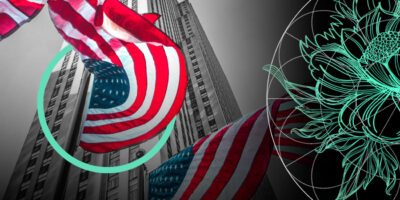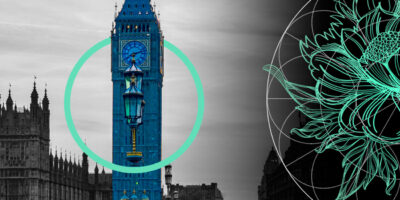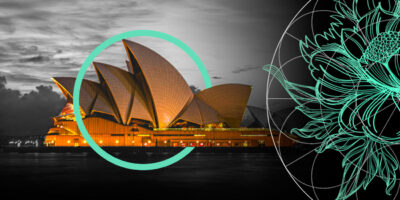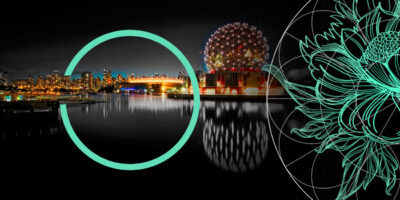Overview
The Ranking evaluates data of the top Italian billionaires according to their estimated net worth, industry affiliation, and ranking position.
The list includes richest people from various sectors such as finance, consumer goods, real estate, industry, and entertainment in Italy.
Beinsure Media analyzed data from The Bloomberg Billionaires Index and compiled a Italy’s billionaires rating.
Italy’s economic landscape in 2025 is shaped by a diverse group of billionaires spanning sectors from confectionery and finance to fashion and automotive.
List of Richest People in Italy by Net Worth
| Rank | Name | Net worth | Industry |
| 1 | Giovanni Ferrero | $53.7B | Food & Beverage |
| 2 | Andrea Pignataro | $26.6B | Finance |
| 3 | Paolo Rocca | $17.4B | Commodities |
| 4 | Giancarlo Devasini | $11.5B | Finance |
| 5 | Piero Ferrari | $10.1B | Consumer |
| 6 | Francesco Gaetano Caltagirone | $9.1B | Diversified |
| 7 | Massimiliana Landini Aleotti | $7.4B | Consumer |
| 8 | Miuccia Prada | $6.9B | Consumer |
| 9 | Patrizio Bertelli | $6.9B | Consumer |
| 10 | Sergio Stevanato | $6.3B | Consumer |
Italy’s Richest People (2025): Billionaire Elite
Leading this elite cohort is Giovanni Ferrero, whose stewardship of the Ferrero Group—home to iconic brands like Nutella and Kinder—has solidified his position as Italy’s richest individual. Ferrero’s net worth stands at $53.7 bn.
Following Ferrero is Andrea Pignataro, the founder of Ion Group, a financial software and data firm. Pignataro’s ventures have amassed him a fortune of $26.6 bn, placing him second among Italy’s wealthiest.
In the commodities sector, Paolo Rocca and his family hold a significant presence with a net worth of $17.4 bn. Rocca’s leadership in the industrial conglomerate Techint underscores the family’s substantial wealth.
The finance industry also features prominently with Giancarlo Devasini, associated with the cryptocurrency firm Tether, holding assets worth $11.5 bn.
Italy’s renowned fashion and luxury sectors are represented by several notable figures. Piero Ferrari, vice chairman of the famed automotive company Ferrari, possesses a net worth of $10.1 bn.
Italian fashion designer Giorgio Armani ($8.9 bn net worth) died on 4 September 2025 at the age of 91. He passed away in Milan and had been facing health issues; in June 2025 he missed Milan Fashion Week for the first time because of illness.
Fashion designers Miuccia Prada and Patrizio Bertelli, the power couple behind the Prada fashion house, have fortunes of $6.9 bn and $6.9 bn respectively.
Diversified investments have also propelled Francesco Gaetano Caltagirone into the upper echelons of wealth, with holdings amounting to $9.1 bn.
This assemblage of affluent individuals underscores the multifaceted nature of Italy’s economy, where traditional industries coexist with emerging sectors, collectively contributing to the nation’s financial prowess.
Top 10 Richest Men in Italy in 2025
1. Giovanni Ferrero – $53.7B
Giovanni Ferrero is the executive chairman of Ferrero Group, the Italian confectionery empire best known for Nutella, Kinder, and Ferrero Rocher. Born in 1964 in Farigliano, Italy, Giovanni studied marketing in the United States before joining the family business founded by his grandfather in 1946.
After his brother Pietro’s sudden death in 2011, Giovanni became the sole leader, overseeing Ferrero’s expansion into one of the world’s largest chocolate and confectionery companies. Under his stewardship, Ferrero acquired Nestlé’s U.S. candy business, giving it a strong foothold in North America.
He has balanced tradition with innovation, maintaining Ferrero’s reputation for quality while expanding into new markets. Despite immense wealth, Giovanni keeps a low public profile, often described as reserved and disciplined. Beyond business, he is also a novelist, having published several books in Italian.
The Ferrero family is deeply rooted in philanthropy, supporting community projects in Alba and beyond. Giovanni’s success is not only a continuation of his family’s legacy but also a testament to his ability to transform a beloved Italian brand into a global powerhouse, making him Italy’s richest man and one of Europe’s most influential entrepreneurs.
2. Andrea Pignataro – $26.6B
Andrea Pignataro is a former bond trader turned billionaire fintech entrepreneur, best known as the founder of ION Group, a global leader in financial software and data solutions. Born in 1970 in Italy, Pignataro began his career at Salomon Brothers in London before striking out on his own. In 1999, he founded ION, which started as a provider of trading software and evolved into a diversified fintech empire.
Through an aggressive strategy of acquisitions, Pignataro built ION into a company serving banks, asset managers, and corporations worldwide, offering trading, risk management, and treasury solutions.
ION’s software is integral to global financial markets, and its influence continues to expand. Known for his secretive nature, Pignataro rarely appears in public or gives interviews, cultivating a mysterious image despite his vast wealth. His fortune has grown rapidly in recent years, making him one of Italy’s richest individuals.
He has invested in education and cultural initiatives through his charitable foundation. Pignataro’s rise highlights the growing importance of financial technology and how Italian entrepreneurs are shaping industries far beyond their borders, positioning him as a major player in the global financial infrastructure.
3. Paolo Rocca – $17.4B
Paolo Rocca is the chairman and CEO of Techint Group, a multinational conglomerate with interests in steel, engineering, and energy. Born in 1952 in Milan, Rocca comes from one of Italy’s most prominent industrial families. His grandfather founded Techint in 1945, and under Paolo’s leadership, the company has become a global powerhouse, particularly in Latin America.
Techint’s steel arm, Tenaris, is one of the world’s largest producers of seamless steel tubes for the energy industry, with operations across the Americas, Europe, and the Middle East. Rocca is credited with expanding the company’s footprint internationally while maintaining its Italian heritage.
He balances tradition with modernization, investing in innovation and sustainability. While based in Argentina for much of his career, Rocca retains strong ties to Italy, where Techint continues to play a role in industrial development.
His wealth reflects both his family legacy and his ability to navigate complex global markets. Beyond business, Rocca is engaged in philanthropy through the Techint Foundation, supporting education, culture, and social programs. His story exemplifies Italy’s enduring influence in heavy industry and its capacity to build multinational champions.
4. Giancarlo Devasini – $11.5B
Giancarlo Devasini is the chief financial officer of Tether, the world’s largest stablecoin issuer, and a key figure in the cryptocurrency industry. Born in 1964 in Italy, Devasini originally trained as a medical doctor but soon shifted careers to pursue business and technology. After working in computer hardware trading, he entered the crypto space and became one of the driving forces behind Tether and Bitfinex, one of the world’s leading cryptocurrency exchanges.
As CFO, he played a central role in scaling Tether into the most widely used stablecoin, which has become essential for global crypto trading by providing a dollar-pegged digital asset. Despite controversies surrounding Tether’s reserves and regulatory scrutiny, Devasini has maintained a discreet public profile, rarely speaking to the media.
His fortune reflects the explosive growth of cryptocurrencies and the central role stablecoins play in digital finance. Devasini’s journey from medicine to finance and blockchain highlights the unconventional paths some of the crypto industry’s most powerful figures have taken. Today, he is considered one of the most influential Italians in the global financial technology landscape, shaping the future of digital currencies.
5. Piero Ferrari – $10.1B
Piero Ferrari is the only surviving son of Enzo Ferrari, the legendary founder of Ferrari, and a major shareholder in the iconic luxury sports car company. Born in 1945 in Modena, Italy, Piero inherited his father’s passion for engineering and automobiles.
While he never held an executive role in Ferrari’s day-to-day operations, he has been deeply involved in the company as vice chairman and custodian of its heritage. Piero owns around 10% of Ferrari, making him a billionaire following the company’s successful public listing.
He has invested in aviation, notably through Piaggio Aero, and other industrial ventures. Known for his reserved personality, Piero has focused on preserving Ferrari’s image as a symbol of Italian excellence and craftsmanship while supporting its evolution into a luxury brand beyond automobiles.
His fortune is tied not only to Ferrari’s enduring success but also to the growing demand for exclusive, high-performance cars globally. Despite his wealth, he maintains a low public profile, preferring to let Ferrari’s cars speak for themselves. Piero Ferrari embodies the legacy of a brand that combines speed, style, and Italian prestige.
6. Francesco Gaetano Caltagirone – $9.1B
Francesco Gaetano Caltagirone is an Italian businessman and investor with a diversified empire spanning construction, real estate, cement, and media. Born in 1943 in Rome, he built the Caltagirone Group into one of Italy’s most important family-run conglomerates. His fortune stems from construction and infrastructure projects, as well as controlling stakes in major companies like Cementir Holding, one of the world’s largest producers of white cement.
He has invested heavily in real estate across Italy and Europe, shaping urban landscapes through commercial and residential developments. Caltagirone also owns significant shares in Assicurazioni Generali, Italy’s largest insurance company, and is a key player in banking. Through his publishing arm, he controls influential newspapers such as Il Messaggero, Il Mattino, and Il Gazzettino, making him a notable figure in Italian media.
He has remained influential in both economic and political circles. His career reflects the power of family-run businesses in Italy and their ability to shape multiple sectors over decades. Caltagirone’s wealth symbolizes resilience and adaptability in Italy’s evolving economy.
7. Massimiliana Landini Aleotti – $7.4B
Massimiliana Landini Aleotti is the owner of Menarini, Italy’s largest pharmaceutical company, and one of the country’s wealthiest women. Born in 1942, she inherited the business following the death of her husband, Alberto Aleotti, who built Menarini into a major international drug manufacturer. Today, the Florence-based company operates in over 140 countries, producing medicines across cardiology, oncology, gastroenterology, and other therapeutic areas.
Together with her children, Lucia and Alberto Giovanni, Massimiliana oversees the group’s operations while maintaining its family-owned structure. Known for her discretion, she avoids public appearances and keeps a very private lifestyle. Under her leadership, Menarini has continued to expand globally, with significant investments in research and development, especially in oncology.
The family has also pursued partnerships with international pharmaceutical companies, ensuring competitiveness in a challenging industry.
The Aleotti family supports cultural and healthcare initiatives in Italy, particularly in Tuscany. Massimiliana’s wealth reflects both inheritance and the ability to sustain long-term growth in a heavily regulated sector. She is a key figure in Italy’s business landscape, embodying the enduring strength of family-owned enterprises in the global pharmaceutical industry.
8. Miuccia Prada – $6.9B
Miuccia Prada is the co-chief executive and creative director of Prada, one of the world’s most iconic luxury fashion houses. Born in 1949 in Milan, she is the granddaughter of Mario Prada, who founded the brand in 1913.
Trained as a political scientist and mime artist before joining the family business in the late 1970s, Miuccia transformed Prada into a global symbol of sophistication and innovation. She introduced groundbreaking designs, including minimalist aesthetics and nylon bags, which revolutionized luxury fashion in the 1980s and 1990s.
Alongside her husband, Patrizio Bertelli, she expanded Prada’s global presence, acquiring brands like Miu Miu and Church’s. Known for her intellectual approach to fashion, Miuccia often blends art, politics, and culture into her designs, making Prada a favorite among avant-garde audiences.
She and Bertelli established Fondazione Prada, a cultural institution in Milan and Venice that supports contemporary art and thought. Miuccia is celebrated not only as a designer but also as one of the most influential women in fashion history. Her fortune reflects the enduring power of Italian luxury and her ability to reinvent tradition with modern sensibility.
9. Patrizio Bertelli – $6.9B
Patrizio Bertelli is the co-chief executive of Prada and the husband of Miuccia Prada, with whom he has built one of the world’s leading luxury fashion empires. Born in 1946 in Arezzo, Italy, Bertelli began his career in leather goods, founding his own company before merging it with Prada after marrying Miuccia in the late 1970s.
Bertelli focused on supply chain control, brand positioning, and global retail expansion, while Miuccia led creative direction. Together, they transformed Prada into a multibillion-dollar luxury group with an international presence.
Bertelli is credited with pioneering the concept of vertical integration in fashion, ensuring quality and exclusivity from production to retail. Beyond fashion, he is an avid supporter of sailing, sponsoring the Luna Rossa Challenge, Italy’s entry into the America’s Cup, which has become a symbol of Italian craftsmanship and innovation.
Bertelli’s strategic acumen has been central to Prada’s enduring success. His wealth reflects decades of building one of Italy’s most prestigious brands, blending creativity and business to shape global luxury culture.
10. Sergio Stevanato – $6.3B
Sergio Stevanato is the chairman of Stevanato Group, a leading manufacturer of glass packaging for the pharmaceutical industry. Born in 1943 in Venice, he joined the family business founded by his father, Giovanni Stevanato, in 1949. Under Sergio’s leadership, the company expanded from a small glass workshop into a global enterprise specializing in vials, syringes, and other critical components for drug delivery.
The Stevanato Group plays a crucial role in the global healthcare supply chain, particularly during the COVID-19 pandemic, when demand for vaccine vials surged. The company went public on the New York Stock Exchange in 2021, further boosting the family’s fortune. Stevanato has emphasized innovation, automation, and sustainability in manufacturing, ensuring the company’s competitiveness in a demanding sector.
Though he has stepped back from daily operations, his children now play active roles in managing the business, continuing its family-led tradition. Beyond business, Sergio is involved in philanthropy and local cultural initiatives, supporting projects in Veneto. His story reflects how Italian family-owned enterprises can achieve global scale by focusing on specialized industries essential to modern life.
Billionaires List by Country in 2025
- Richest People in the United States
- Richest People in the United Kingdom
- Richest People in Canada
- Richest People in Australia
- Richest People in China
- Richest People in France
- Richest People in Germany
- Richest People in Hong Kong
- Richest People in Sweden
- Richest People in Switzerland
- Richest People in India
- Richest People in Indonesia
FAQ
Giovanni Ferrero, head of the Ferrero Group (makers of Nutella, Kinder, and Ferrero Rocher), holds the top position with an estimated net worth of $53.7 bn.
The leading sectors include finance, consumer goods (notably fashion and luxury), commodities, and diversified holdings, reflecting Italy’s rich mix of traditional enterprise and modern innovation.
Yes, fashion icons Miuccia Prada, and Patrizio Bertelli all appear in the top rankings, underlining the global success of Italy’s luxury fashion industry.
At least three individuals—Andrea Pignataro, Giancarlo Devasini, and Paolo Rocca (with partial involvement)—are prominently linked to finance, highlighting its growing role in Italian wealth creation.
The list highlights the diverse and evolving nature of the Italian economy. It shows strong roots in family-owned enterprises and luxury brands, while also pointing to growing wealth in technology, finance, and global markets.
………………
Edited by Yana Keller – lead finance editor at Beinsure Media





